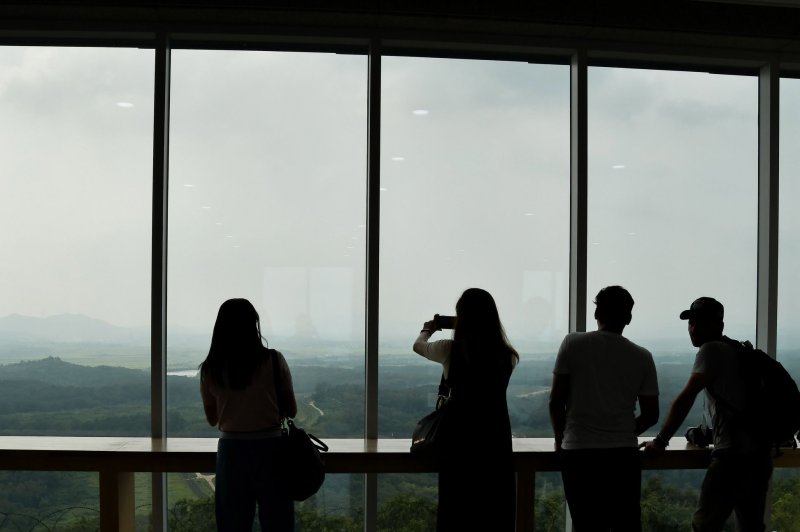South Koreans will be able to identify North Korean locations on a new map with advanced search capabilities via a publicly available site, Seoul's unification ministry said Monday. File Photo by Keizo Mori/UPI |
License Photo
Dec. 7 (UPI) -- South Korea's unification ministry plans to launch a "new and improved" online portal that includes detailed maps of North Korea and trade data.
The ministry said Monday that the new North Korean information portal will go live Tuesday. Improvements reflect recommendations from a South Korean civil committee of 20 people, Newsis and Segye Ilbo reported.
The committee was formed in June to advise the ministry on content. The group submitted opinions regarding improvements to its online menu, user interface and content, the ministry said.
The public website, nkinfo.unikorea.go.kr, is available only in Korean. The site is to include North Korean news, a section on North Korean "trends" and North Korea analysis.
The portal also will provide a North Korean map service, with new search functions and "duplication capabilities," the ministry said.
Seoul's Korea International Trade Association will provide the portal with North Korean trade statistics, economic briefings and news infographics, according to reports.
The ministry said the site will "function as a differentiated big-data platform" so that the public may use it "more easily and conveniently."
The ministry also operates a channel on YouTube, UNI TV, with more than 27,000 subscribers. The channel includes video clips of K-pop concerts, documentaries of the Korean demilitarized zone, and a soap opera about a romance between a defector and a South Korean.
Reports on Monday made no mention of data on North Korea human rights.
In September, the ministry had said the government would declassify its findings on the North's human rights abuses, and that the Center for North Korean Human Rights Records is to publish collected data this year.
Seoul's North Korean Human Rights Act became law in September 2016. It allows the government to keep an official record of rights abuses in the North. Under the law, the record can be used as grounds for potential punishment of North Korean authority figures.















